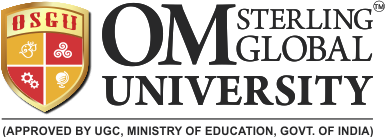The Bachelor of Vocation (B.Voc) in Medical Lab Technology (MLT) is a specialized program designed to equip students with the necessary skills and knowledge to work effectively in medical laboratory settings. Offered at OSGU Vocational Training, this course focuses on practical training and theoretical understanding crucial for a career in medical diagnostics and laboratory management.
Understanding Medical Lab Technology
Medical laboratory technology encompasses a broad range of skills essential for conducting clinical tests, analyzing samples, and assisting in patient diagnosis and treatment. The B.Voc in MLT at OSGU Vocational Training provides a comprehensive curriculum that covers:
Laboratory Techniques: Students learn fundamental laboratory procedures such as specimen collection, handling, and processing. They gain hands-on experience in operating and maintaining laboratory equipment used for diagnostic testing.
Diagnostic Procedures: The program emphasizes the importance of accurate diagnostic testing. Students are trained in conducting various tests, including biochemical, hematological, microbiological, and immunological assays.
Quality Control: Understanding and implementing quality control measures is vital in ensuring accurate and reliable test results. Students learn how to monitor and maintain quality standards within the laboratory.
Laboratory Management: Beyond technical skills, the curriculum includes modules on laboratory management and administration. This covers inventory management, safety protocols, and compliance with regulatory standards.
Key Skills Developed
Technical Proficiency: Graduates emerge proficient in conducting a wide range of laboratory tests and procedures. They are skilled in using advanced laboratory equipment and interpreting test results accurately.
Analytical Skills: The program sharpens students' analytical abilities, enabling them to critically evaluate test data and contribute effectively to clinical decision-making.
Problem-Solving Abilities: Students develop strong problem-solving skills, essential for troubleshooting technical issues in laboratory operations and ensuring smooth workflow.
Communication Skills: Effective communication is crucial in healthcare settings. Students learn to communicate test results clearly to medical professionals and patients, fostering effective teamwork and patient care.
Attention to Detail: Precision and attention to detail are emphasized throughout the program. Graduates demonstrate meticulousness in sample handling, testing procedures, and result interpretation.
Ethical Practice: Understanding ethical considerations in laboratory practice is fundamental. Students are trained to uphold ethical standards, patient confidentiality, and professional conduct.
Also Read: Why Choose Nutri Healthcare as a Career Path?

